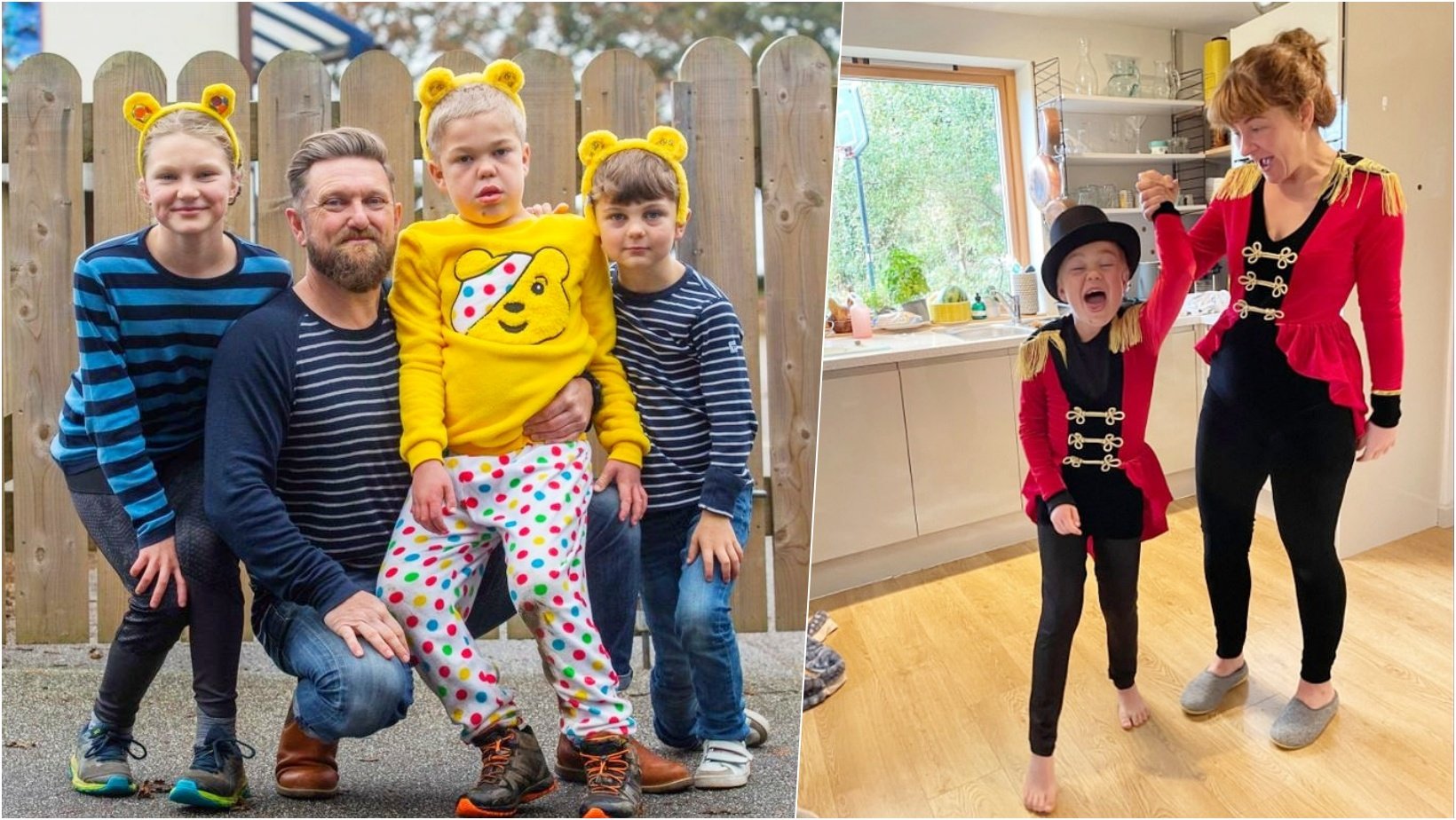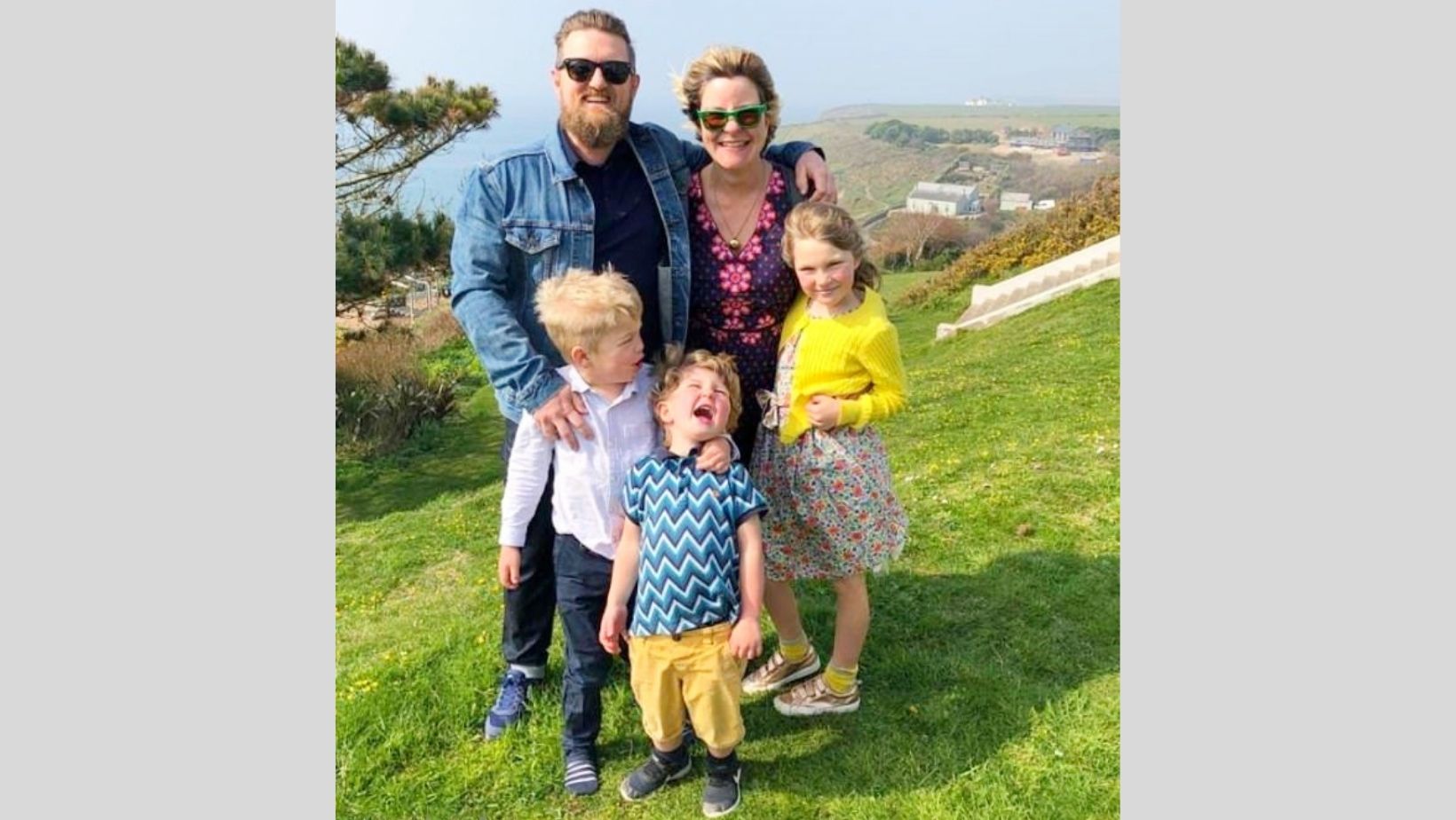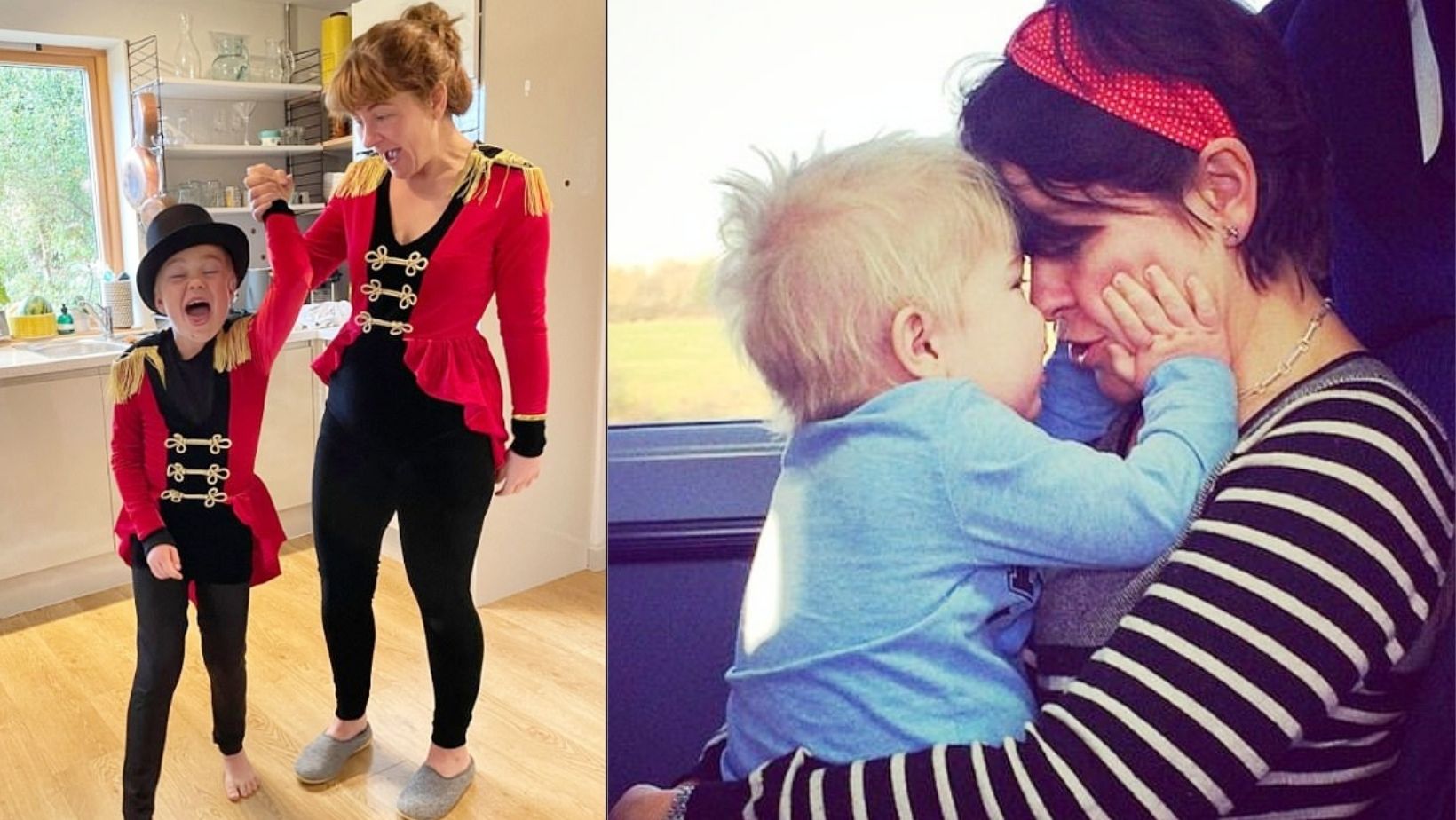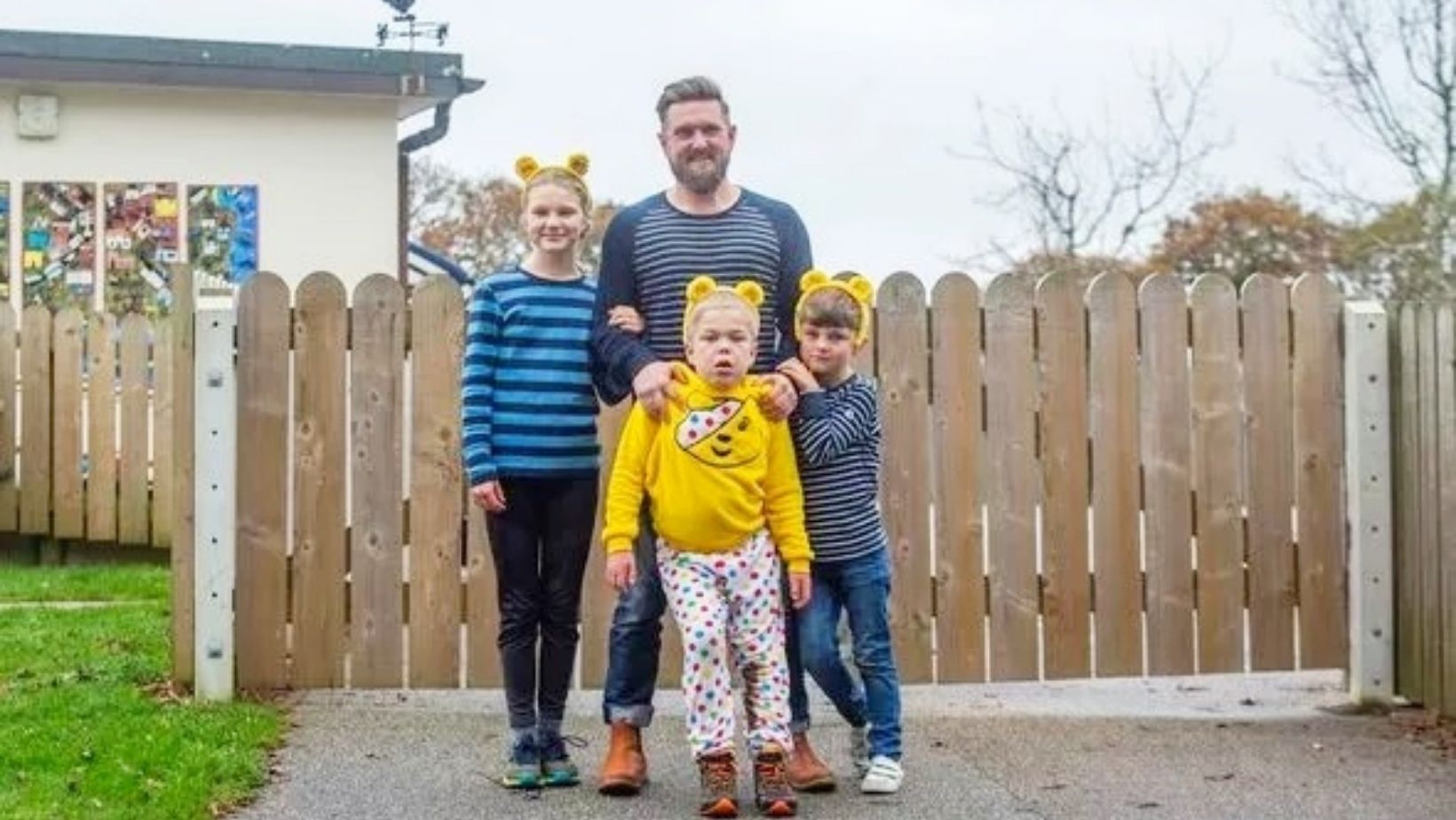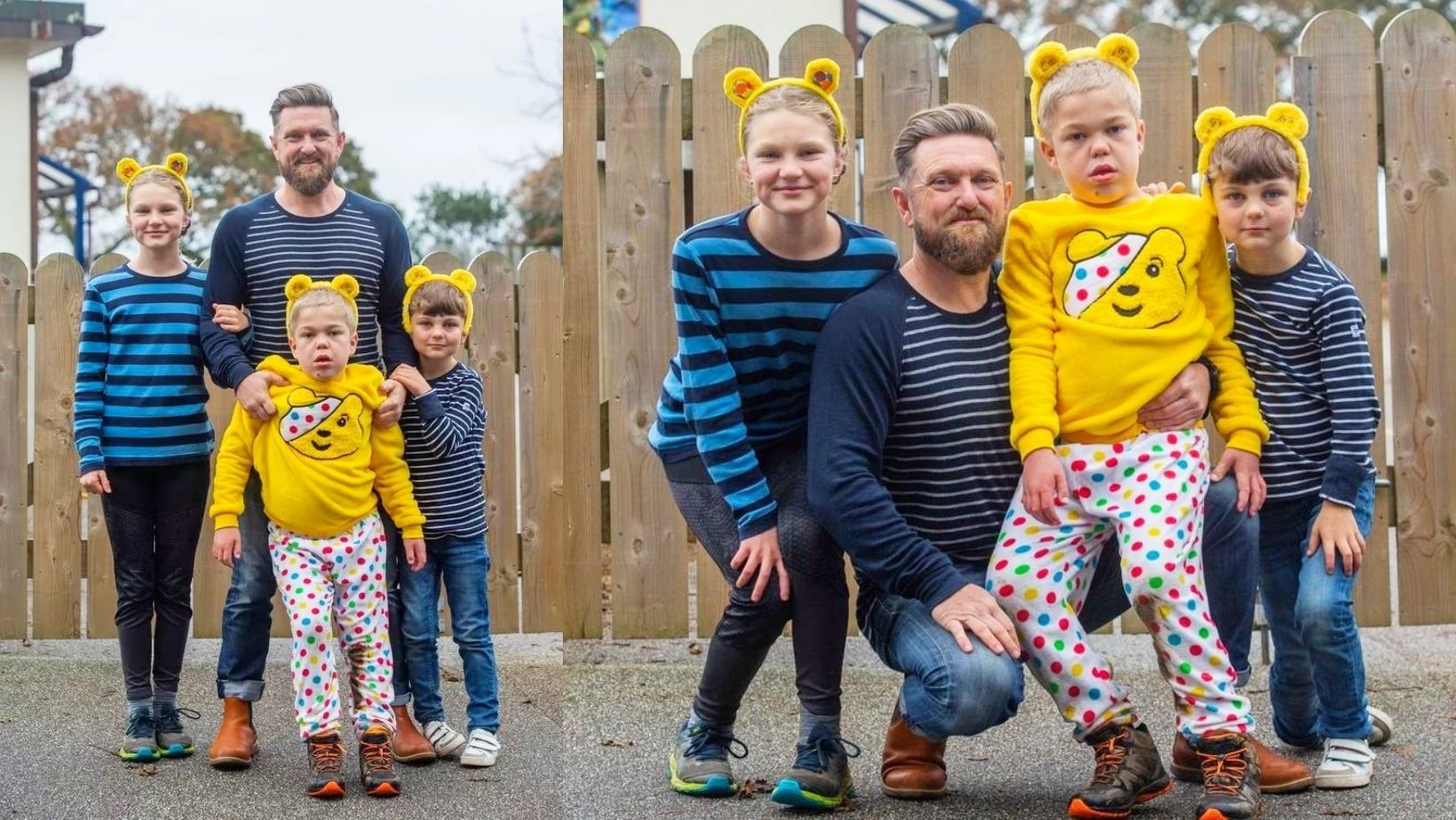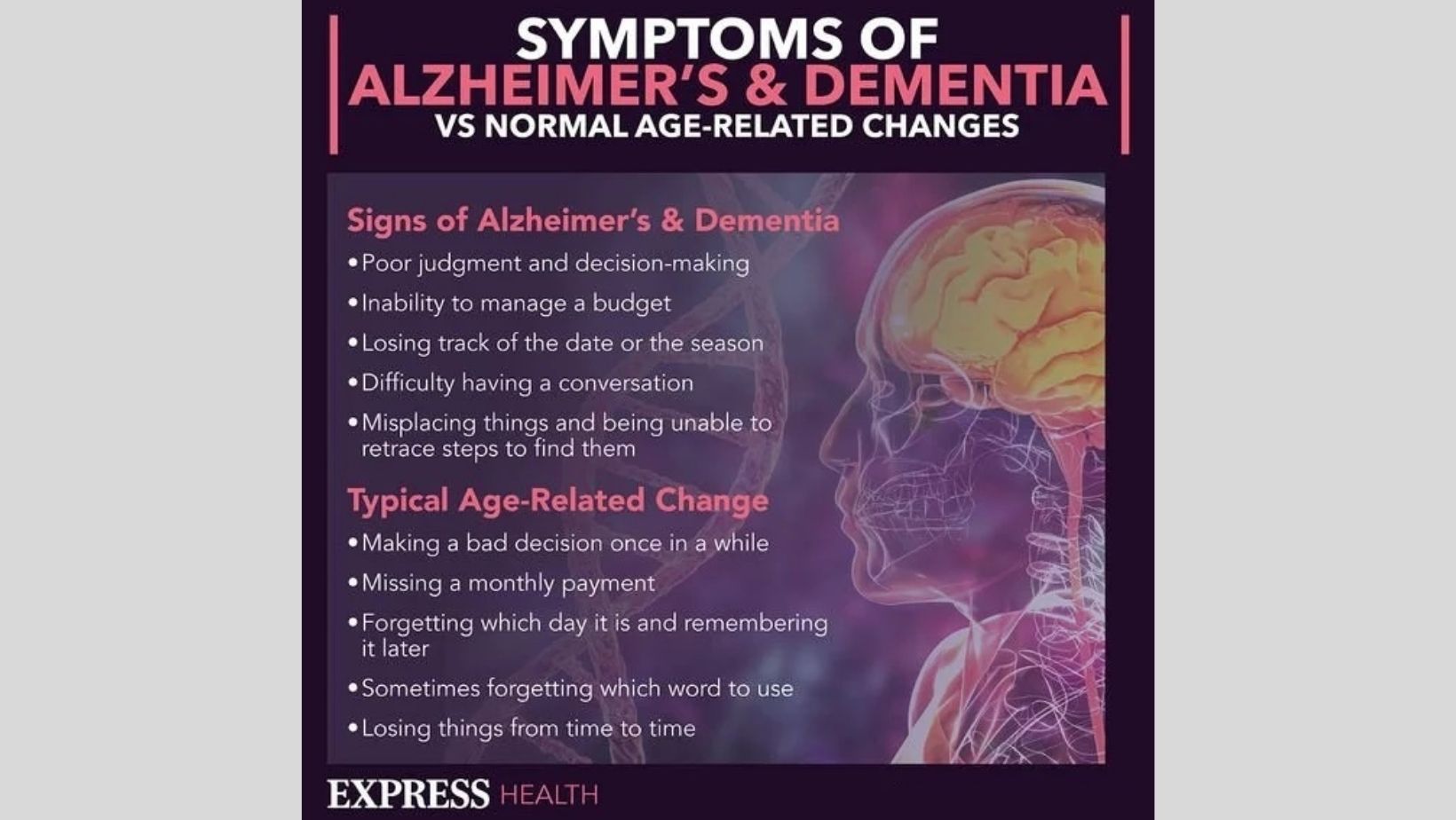A devastated mom has shared that her son no longer recognizes her after being diagnosed with a rare condition when he was just a toddler.
Stanley Barnes, 8, was diagnosed with Sanfilippo, a condition related to Alzheimer’s. Stanley was first diagnosed with the condition when he was just 16 months and the condition has a life expectancy between 10-20.
This condition means the young boy can no longer communicate with his parents or remember everyday words such as “apple”. But it hasn’t stopped Stanley from walking 16 km (10 miles) in a week to raise $6,700 for UK charity Children In Need.
Despite him mostly remaining physically active, his mom, Mari Barnes, 40, from Falmouth, Cornwall, says that her son doesn’t know who she is when she goes to pick him up from school.
She says that it has started to worsen, and she feels like she is “losing a part of him every day.” But, despite the difficulty she and her husband Ross Barnes, 44, have experienced, Mari has spoken out to raise awareness of the rare condition and pay tribute to Stanley’s bravery.
Mari says: “He’s quite dramatically gone downhill this year – he’s lost all his words.
It’s really hard, it feels like you’re losing part of him each day. This is rapid, just six months ago he might have been able to acknowledge you or say something. It’s a bit like childhood Alzheimer’s, that’s the easiest way to describe it to someone,” adding that “He’s just basically losing skills”.
The family says when Stanley was about two he underwent a two-year trial at Great Ormond Street Hospital.
His mother said: “It was really quite invasive, they put a gate inside his body that went into his spinal column. They then injected that port with the enzyme that he was missing every two weeks, so that was quite full-on.”
“We were on that trial for two years which kind of gave us a bit of hope that it would slow down the progression of his disease a bit and give him a better quality of life for longer. To an extent I think it has helped Stan, he’s eight now, and compared to a lot of others with his condition he’s in relatively good nick.”
Mari now wants to share her experience of parenting a child with Sanfilippo to help others going through a similar experience and they would somehow feel less alone.
She said: “His first year was relatively normal. Then I saw a big change in him after that. He just stopped hitting those milestones, and we got referred to a pediatrician – so we got a really really early diagnosis.”
“A lot of children don’t get diagnosed until school age, people tend to just think the child might be autistic. They might have forgotten how to do a task like pick a pen up, things like that – so those are the alarm bells around it all.”
“They have shorter limbs, and larger eyebrows, and a blackened nose bridge – it looks quite sweet in a way – but it can get stronger as they get older. It’s just a result of the disease,” she added.
Explaining how the condition affects the brain, she said: “His cells are lacking in enzymes that clean out toxins, so as he gets older those toxins get built up – and so everything starts to shut down.”
While Stanley is still physically able to do most things, Mari has noticed he’s “stiffening up” and isn’t walking as far as he once could.
Ms. Barnes and her husband spent many of Stanley’s early years trying to give him as many experiences as possible. This included a trip to Lapland with the Make-a-Wish foundation.
She said: “Like with Alzheimer’s, he has some early memories he recognizes. Like if we walk past the nursery, for example, he sometimes tries to go in, and he remembers songs we used to sing to him because his face lights up.”
Also known as MPS III, Sanfilippo syndrome is a degenerative disorder. Children diagnosed with the condition are missing an enzyme that is essential in breaking down sugar molecules in the body.
These then build up in the body and can cause progressive damage. Babies may show little signs of the disease. But, as more and more cells become damaged, symptoms begin to appear.
There is currently no cure for Sanfilippo syndrome, but in the US the FDA has approved enzyme replacement therapy to treat several forms of MPS diseases.


